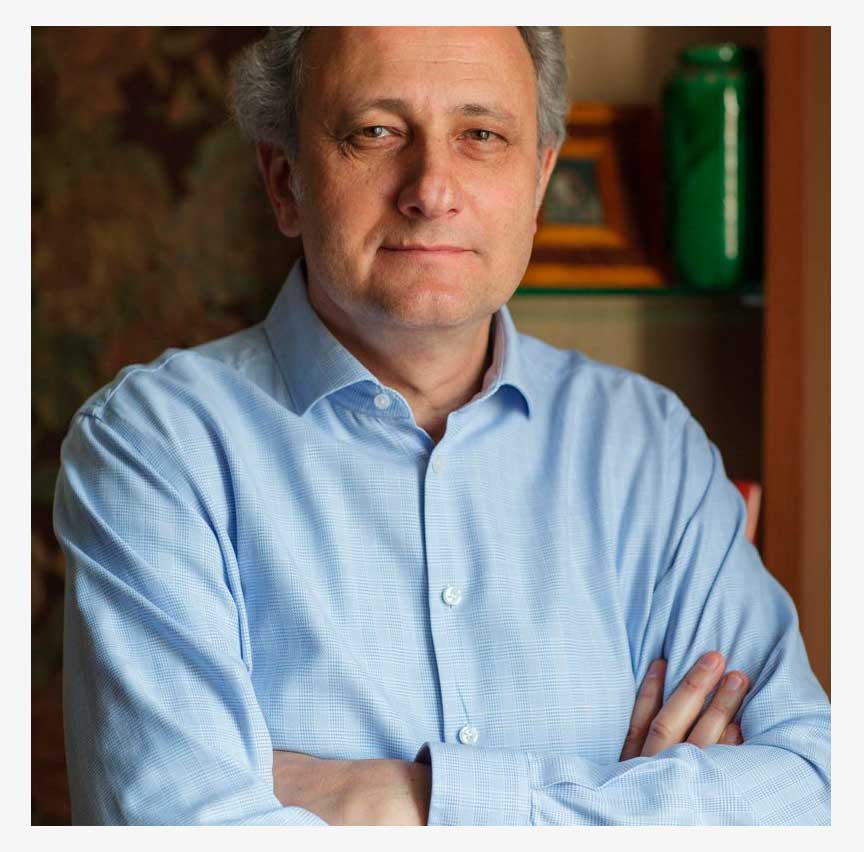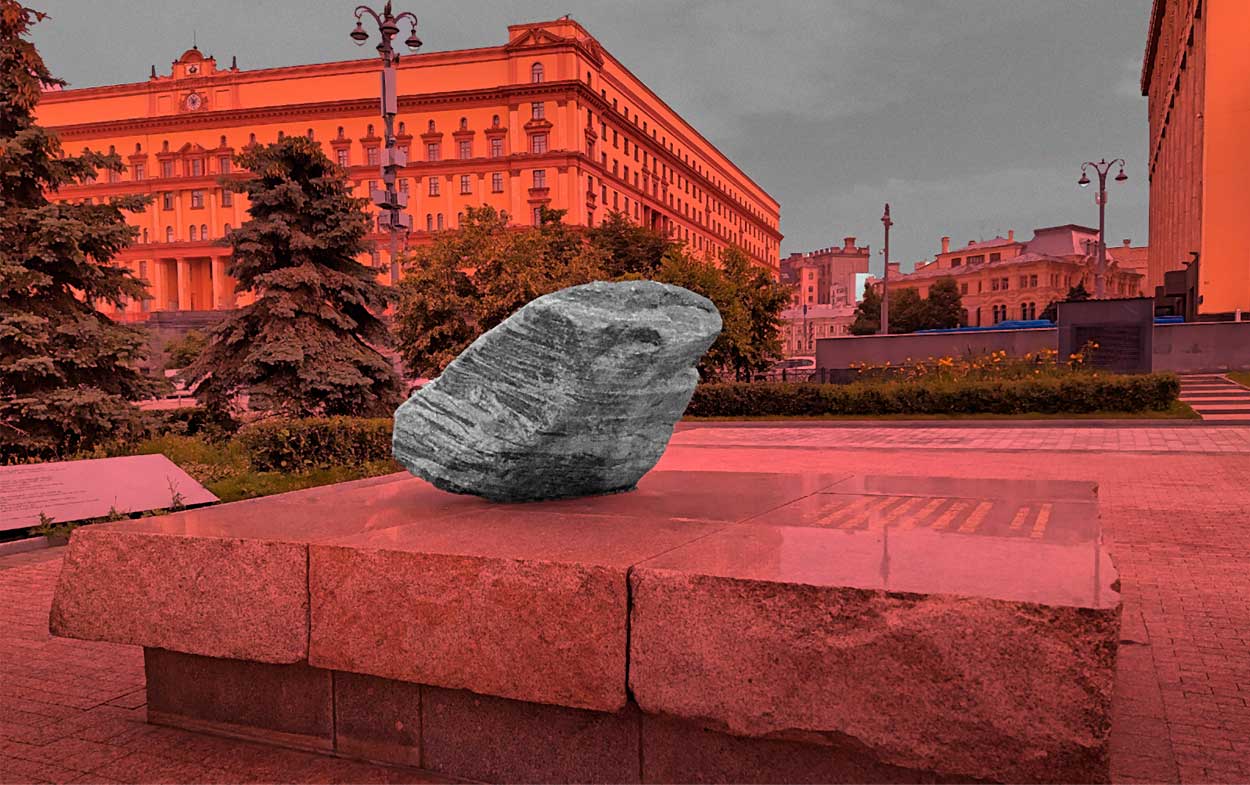The leader hid in a tower by the Moscow River.
He's paralyzed with fear.
He trusts no one anymore,
as if he built a prison for himself.
Everything is under his control, yet again he's not happy...
Forgive him, mama: he's not to blame,
he doesn't take sin upon his soul —
he's not for himself — he's for the whole nation.
Bulat Okudzhava, "Letter to Mama", 1988
 The Day of the Political Prisoner, October 30, later renamed in better times to the Day of Remembrance of the Victims of Political Repressions, of course, has not ceased to be a day of remembrance. But due to the full return of political repressions and the formation of a hybrid-totalitarian regime in Russia, it has also become a day of moral resistance to it. October 30 has ceased to be exclusively a day of remembrance of what happened during the years of Stalinism and the subsequent Soviet decades. The number of political prisoners and politically motivated sentences is gradually exceeding their number in the most vegetarian times of the late USSR, not to mention the Gorbachev era. And there are so many political articles in the Criminal Code that the former 170th and 190th begin to seem like a model of at least some clarity and order.
The Day of the Political Prisoner, October 30, later renamed in better times to the Day of Remembrance of the Victims of Political Repressions, of course, has not ceased to be a day of remembrance. But due to the full return of political repressions and the formation of a hybrid-totalitarian regime in Russia, it has also become a day of moral resistance to it. October 30 has ceased to be exclusively a day of remembrance of what happened during the years of Stalinism and the subsequent Soviet decades. The number of political prisoners and politically motivated sentences is gradually exceeding their number in the most vegetarian times of the late USSR, not to mention the Gorbachev era. And there are so many political articles in the Criminal Code that the former 170th and 190th begin to seem like a model of at least some clarity and order.
Kronid Arkadyevich Lyubarsky invented the "holiday" of political prisoners half a century ago, in 1974. And three decades ago, in an article "The Boulder on Lubyanka", published in the magazine "New Time", he stated the absence of political prisoners and political repressions in Russia: "Russia has lived to see this day". At that time, it really seemed — now for sure everything. Lyubarsky had a dry and skeptical mind, but even he could not predict the return of neo-Stalinism, it seemed completely incredible, unthinkable, irrational.
And now his legacy is relevant again. The state, declaring war on its current dissenters, declared war on their predecessors — millions of dead tortured by Stalin's regime.
In the foundations of state policy of perpetuating the memory of the victims of repressions, the key word "mass" disappears. The Prosecutor General's Office is in a hurry to correct the "mistakes" of its predecessors who rehabilitated "the wrong ones". The destruction of "Last Address" plaques has become a widespread routine, as has their restoration — a civil war is going on between the liquidators of memory and its keepers. Memorial signs to the victims of repressions are being destroyed methodically and with impunity. For several years in a row, the "Return of Names" action has been banned under the Orwellian pretext of sanitary anti-COVID restrictions, and now the website of the action is also blocked, so that people cannot even virtually commemorate their dead.
It turns out that the liquidators and desecrators of the dead have not gone anywhere. We were given a short respite, we were given freedom, which we, awkward and clumsy, did not hold in our hands, and now the freedom — of persecution, repressions, absurd decisions — has been returned to them. The main safeguard — "Memorial"** — was declared illegal right before the start of the "special operation", opening its gates. First, deprive of memory, then — act.
The brakes have failed for the authorities, and they are failing for the society that doesn't care. It is indifference and self-censorship, conscious, learned forgetfulness that kill memory — the main thing that should remain with the nation if it wants to preserve itself. People, engulfed in an artificial coma of amnesia, are easier to control. People who have speeches about "traditional spiritual and moral" and Medinsky's textbooks inserted instead of brains, and instead of emotions — the hysterics of TV killer Solovyov, will never doubt, ask questions, and think critically. Completely reconfiguring ideas about history is difficult, although titanic efforts are being made to whitewash Stalin and overturn ideas about repressions, but plunging the majority of the nation into amnesia is quite possible. The Solovetsky Stone, installed on Lubyanka in 1990, still stands, but in the architectural ensemble of this infamous square, the two grim boxes of the KGB buildings undoubtedly dominate.
The heirs of Stalin are in power again. The Wall of Grief on Sakharov Avenue looks like an atavism: the memorial does not make indifferent passers-by think, the authorities simply paid off with it and built it as if only for Putin to speak at the opening — quickly and with meaningless official words. When people came to the wall on the days of remembrance of Alexei Navalny, they were simply driven away from it, from the memorial, which seemed to be specially built for them.
In short, the Day of the Political Prisoner returns as a day of civil moral resistance to the regime that has returned in neo-Stalinist clothes. This is how this day is perceived by the regime, judging by the ban on the "Return of Names". No matter how caricatured and pompous it sounds, the masks are indeed off. No one in power is embarrassed anymore.
Kronid Lyubarsky chose October 30 as a "holiday" because it was the day of his sentencing. The "bosses" knew about his plan, tried to isolate him, but transferring the unyielding prisoner, a professional astronomer in glasses, from zone to zone, and then to the "krytka" in Vladimir only spread the news about the Day of Solidarity with Political Prisoners wider. It was known and "celebrated" in the Perm region, Mordovia, and Vladimir. And after the press conference on October 30, 1974, in Andrey Sakharov's apartment in Moscow, led by Sergey Kovalev, the Day of the Political Prisoner gained literally worldwide fame.

Solovetsky Stone (Moscow)
In 1989, on October 30, the KGB building on Lubyanka was surrounded by a living chain of people with candles in their hands — now such a thing would be absolutely impossible, it's easy to imagine the scale of arrests: compare the Gorbachev times and the Putin times. In 1990, on October 30, a boulder from the Solovetsky Islands arrived at Lubyanka. It's still in place...
On October 30, 1976, Kronid Arkadyevich wrote a message from the zone — "To Friends at Large and Behind Bars". This is an outstanding political work, but the horror is that every line of it now, in October 2024, sounds as if written today in the wake of today's events.
"...All of us, together with you, friends, represent an integral part of the resistance movement, emerging throughout the country and on both sides of the barbed wire... We often hear reproaches about the weakness or even absence of the notorious positive program on many key social issues... It is clear that we must start by creating conditions in which the development of such a program would be possible. This primarily means ensuring basic civil liberties... Of course, a movement that sets such tasks is primarily a political movement... But it is no less a moral movement (my italics. — A. K.). Those who participate in such a movement — and here the political prisoner is in the front ranks, — set another important task: to overcome the inertia of fear inherent in our society, accumulated over decades, to educate a new generation of free people — internally free, so that they can win external freedom for themselves! This must be done, and it is being done. By the power of the word. By the power of example, by taking all the rights denied to us by force..."
Kronid Lyubarsky concluded his message with words about history, a truly heroic history, which "is not theirs, but ours with you". And, of course, with the old motto: "For our freedom and yours!"
The Day of Remembrance of the Victims of Political Repressions has been official since 1991. But today's state is fighting against its own foundations, because the new Russia emerged, among other things, on the foundation of memory of political despotism and its repressions. And now it turns out, in Lyubarsky's words, that this is our history, not theirs.
Putin's Russia, waging war on October 30, is waging war on Russia. These two concepts must be distinguished.
* Andrey Kolesnikov is considered a "foreign agent" by the Ministry of Justice of the Russian Federation.
** The organization is recognized as a "foreign agent" in Russia and was liquidated by court decision.